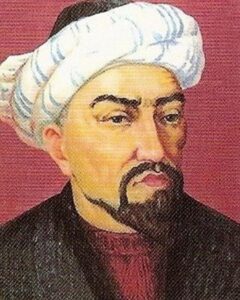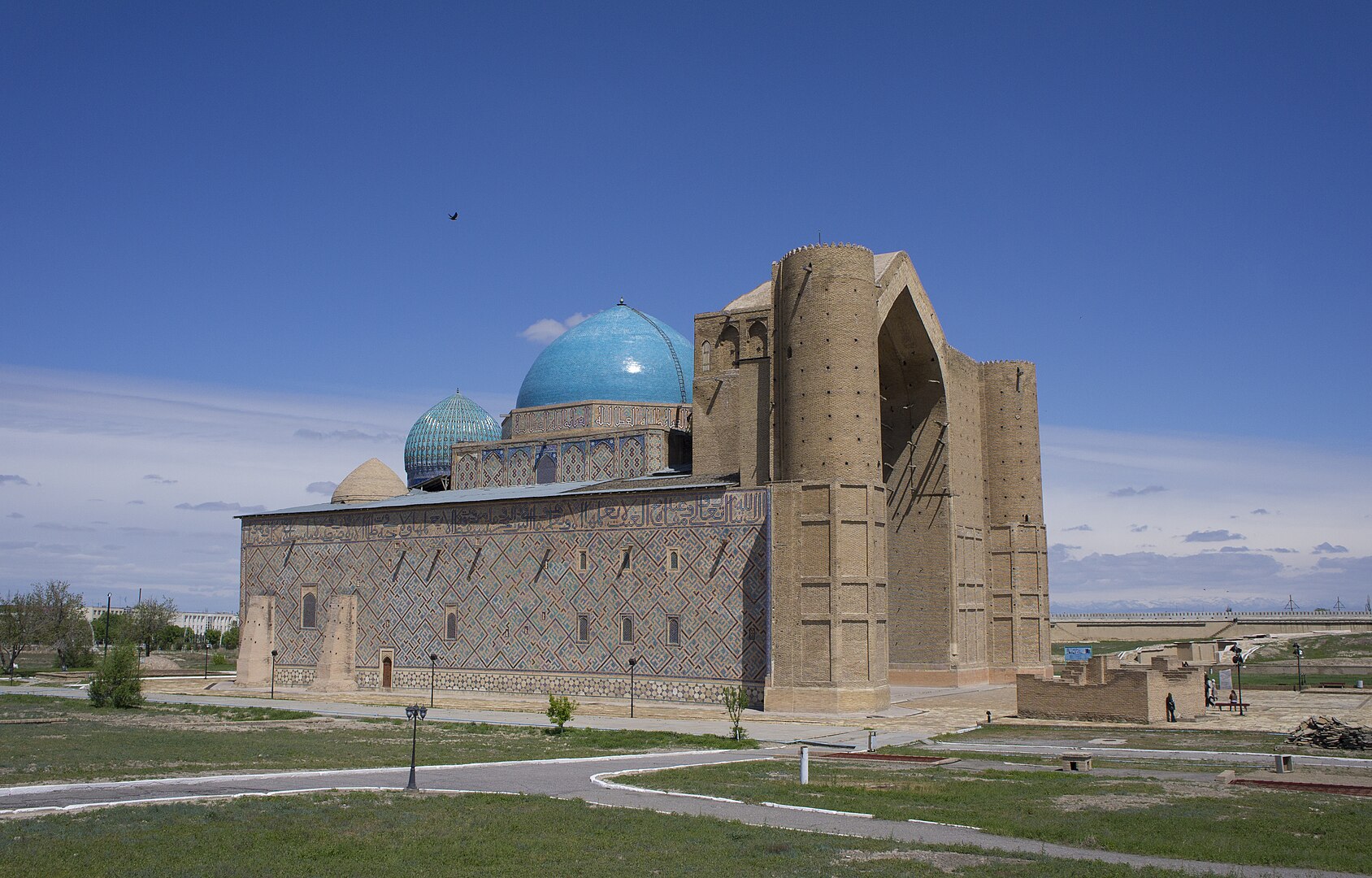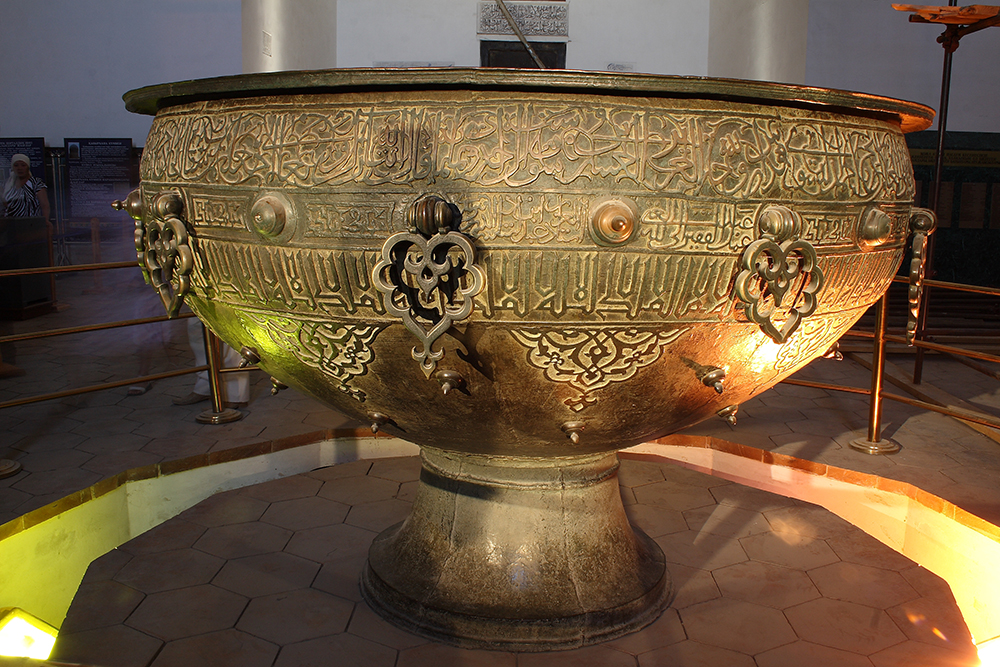ASTANA – Kazakhstan is commemorating the 930th birthday of Khoja Ahmed Yasawi, a philosopher, poet and spiritual leader who founded the Sufi school across Central Asia.

Khoja Ahmed Yasawi
In the realm of Sufi Islam, Yasawi is both well-known and respected for his work called “Diwan-i Hikmet” (A Book of Wisdom). Written in poetic verses, the work delves into moral subjects, exploring topics such as faith, virtue, eternal love, selfless loyalty, and the enduring values of Islam..
Yasawi has been instrumental in shaping public perceptions of Islam and played a pivotal role in spreading Islam among the Central Asian Turks.
His life
Born in the ancient city of Sairam in what is now Kazakhstan in 1093, he spent most of his life in the town of Yasi, now Turkistan. His last name Yasawi means a “native of the city of Yasi,” and the prefix Khoja was an honorific title denoting his clerical status.
In his youth, following the death of his father Sheikh Ibrahim, his family moved to Yasi. It was there that he met his spiritual guide and mentor, Arystanbab, who instigated a profound transformation in Yasawi’s mystical thought and practices.
After Arystanbab’s passing, a 17-year-old Yasawi went on to study at the esteemed madrasa of Imam Yusuf Hamadani in Bukhara. During this period, he wrote poems in various languages including Arabic, Shagatai, Persian, and Turkic, while also studying Oriental poetry and literature.
Upon completing his studies, Yasawi returned to Yasi, assuming his first teacher Arystanbab’s role as an Islamic scholar and preacher, where he resided for the rest of his life.
At the time, Yasi was a hub for Sufi sages and scholars who made significant contributions to Islamic literature and culture. Alongside other centers like Syganak, Otyrar, and Sairam, Yasi remained a pivotal focal point for Sufism for many years.
It is believed that after reaching the age of 63—the age at which Prophet Muhammad passed away—Yasawi chose to spend the rest of his life in an underground chamber, believing he should not outlive the Prophet.
Major work: “Diwan-i Hikmet”
Yasawi’s philosophy is deeply rooted in the world of Sufi Islam and the teachings of Arystanbab. His poems, rich in Sufi values, have garnered widespread acclaim.

Khoja Ahmed Yasawi mausoleum in Turkistan. Photo credit: Petar Milošević/wikipedia.org
Over the course of his life, including his years spent in seclusion, Yasawi amassed a comprehensive collection of lyrical verses known as “Diwan-i Hikmet.”
“For Muslims, my hikmet will serve as a teacher;
Whoever it may be, must worship God.
My hikmets speak only to those who understand;
Praise through prayers, immerse yourself in the mercy of Allah,” wrote Yasawi (author’s loose translation from Russian).
The work consists of two volumes focused on humanity’s quest for God. The first part addresses the initiation into the mysteries of Sufism, while the second delves into spiritual concepts, transcending religious dogma to explore themes of faith, love, and peace.
Unfortunately, the original manuscript, written in an old Turkic language, has not been preserved. The extant copies, penned by his followers in the 15th and 16th centuries, are stored in the archives and museums of various cities including Istanbul, Kokand, Tashkent, Moscow, Almaty, and Turkistan.
Mausoleum
Built some 200 years after Yasawi’s death, the Khoja Ahmed Yasawi Mausoleum is a 39-meter-tall Islamic architectural marvel featuring one of Central Asia’s largest brick domes. Commissioned by the ruler of the Golden Horde, Tokhtamysh Temir—also known as Amir Temir—the mausoleum was constructed between 1385 and 1405.

Taikazan is one of the mausoleum’s major exhibits. Photo credit: azretsultan.kz
Today, the mausoleum serves as a significant repository of Kazakhstan’s history, safeguarding over 24,000 medieval exhibits from Timur’s era, including bronze candlesticks, gates, and large bowls, among others.
The surrounding complex comprises a medieval bath, an underground mosque where Yasawi spent his final days, the mausoleum of Timur’s great-granddaughter Rabia Sultan Begim, and 36 other monuments.
The mausoleum has become the final resting place for numerous Kazakh khans and statesmen, including Abylai Khan, Abulkhair Khan, Rabiga Sultan-Begim, Zholbarys Khan, Yesim Khan, Ondan Sultan, and Kazybek Bi, among others.
Thousands of pilgrims from across Kazakhstan and neighboring countries flock to the Khoja Ahmed Yasawi Mausoleum in Turkistan to pay their respects to Yasawi and other eminent figures interred there.
In 2003, the mausoleum was inscribed on the United Nations Educational, Scientific and Cultural Organization (UNESCO) World Heritage List.
